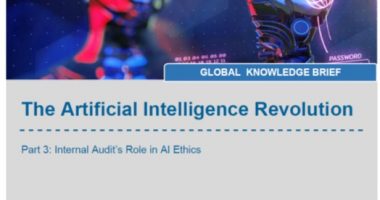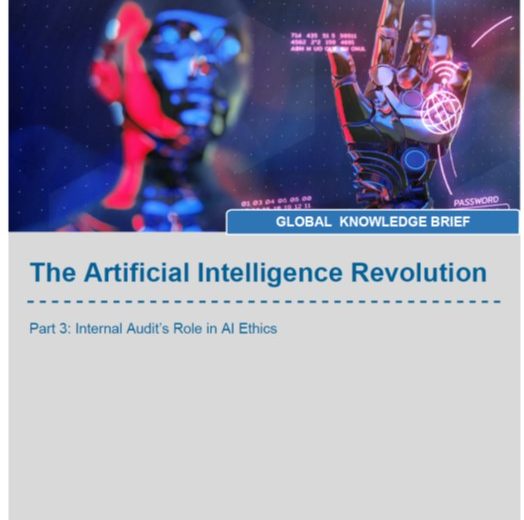Internal auditors will clearly have an important assurance and advisory role as organizations wrestle with AI choices and their implications.
Amid rapid advancements in artificial intelligence (AI), concerns about ethics and related issues have prompted some to recommend a hiatus or slowdown in further development. But despite calls for temporary halts, many organizations are ramping up AI use or planning to do so. Internal auditors will clearly have an important assurance and advisory role as organizations wrestle with AI choices and their implications.
Previous briefs in this series have focused on what internal auditors need to understand about AI and have revisited a landmark publication on the topic, The Institute of Internal Auditors’ (IIA) Artificial Intelligence – Considerations for the Profession of Internal Auditing. Although it was published in 2017, this framework generally remains relevant and useful in most internal audit areas. “Internal audit can help an organization evaluate, understand, and communicate the degree to which artificial intelligence will have an effect (negative or positive) on the organization’s ability to create value in the short,
medium, or long term,” according to the framework.
This third and final brief in the AI series addresses the ethical issues surrounding this multifaceted technology and what those issues mean to organizations and internal auditors. This brief also includes recommendations and insights from management and internal auditors already working on the frontlines of AI use.
Free DOWNLOAD for all members!





